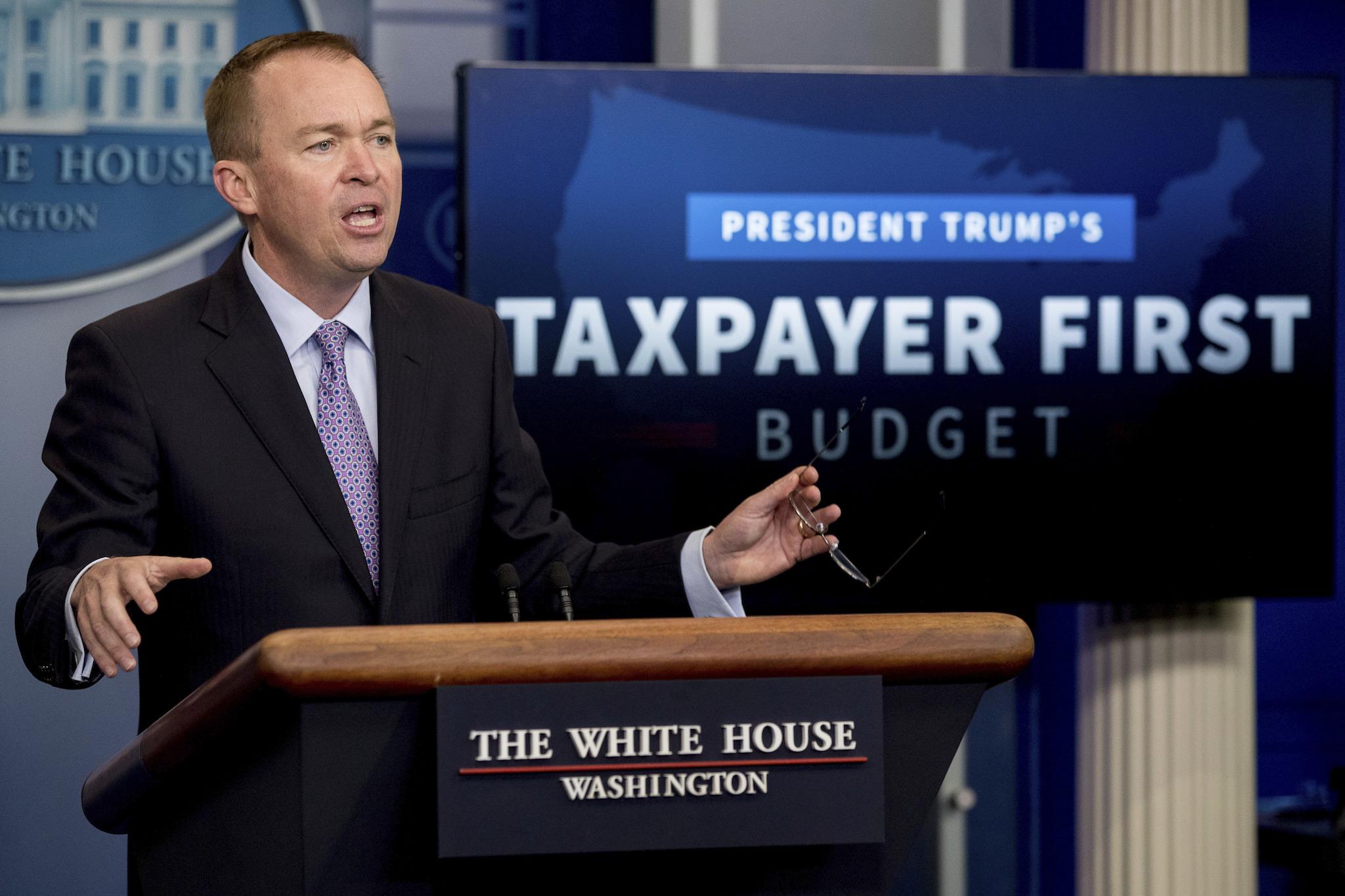Low-income Trump voters to be overwhelmingly hit by President's proposed budget cuts
The President’s proposed budget would slash government spending by $3.6 trillion over 10 years

Many supporters of President Donald Trump will be hit hardest by his administration's new budget – with $3.6 trillion proposed to be slashed from government spending over the next decade, cutting support for programmes that low-income families rely upon.
The biggest savings would come from cuts to the Medicaid healthcare programme for the poor, which are embedded in a Republican healthcare bill passed by the House of Representatives. Mr Trump wants legislators to cut at least $610 billion from Medicaid and more than $192 billion from food stamps over a decade.
However, more than half of the 10 states with the highest percentage of participants in the federal government’s food stamps programme went to Mr Trump in the 2016 presidential election, according to an analysis by the Independent.
Such deep cuts to such programmes have been attacked by Democrats and even some Republicans – and they will be tough to defend when Trump officials appear on Capitol Hill on Wednesday to discuss the plan.
The budget contraction reflects Mr Trump's perception that too much of taxpayers' money is being wasted.
During a press briefing on Monday, Mr Trump’s Budget Director Mick Mulvaney singled out the Supplemental Nutrition Assistance Program (SNAP), the modern version of food stamps, which expanded rapidly after the financial crisis and had roughly 42 million beneficiaries in February 2017.
About 18 per cent to 20 per cent of the populations of Louisiana, West Virginia and Mississippi – all states that went to Mr Trump in the electoral college – are participants of SNAP, as of February 2017, according to the US Department of Agriculture.
“I think at the height of the recession there were 47 million people on SNAP, and now there’s 44 million – even though we're at supposedly near full employment,” Mr Mulvaney said. “So I think that raises a very valid question, which is that: Are there folks on SNAP who shouldn’t be?”
“We need people to go to work,” he later added. “If you are on food stamps and you are able-bodied, we need you to go to work. If you are on disability insurance and you are not supposed to be, you are not truly disabled, we need you to go back to work. We need everybody pulling in the same direction.”
Mr Trump’s budget proposal would cut funding for SNAP by $192 billion over the next 10 years, massively shifting the cost of the programme to state governments.
During a press conference on Tuesday, a reporter asked how Mr Mulvaney would respond to people who want to work but are unable to find a job.
“The folks that are are out there who are on food stamps and want to work, we’ll be able to work with them to solve the problem,” Mr Mulvaney replied. “They are not what’s causing the difficulties in SNAP. It’s the folks who are on there who don’t want to work. And that’s what we’re trying to point out to people.”
Craig Gundersen, a professor of agricultural and consumer economics at the University of Illinois at Urbana-Champaign, said that more than half of SNAP participants are children.
The Committee for a Responsible Federal Budget, a nonpartisan policy organisation, said the full budget plan relied on gimmicks, unrealistic cuts and “rosy assumptions” of economic growth that would reach 3 per cent annually by the end of Mr Trump's first term.
The Congressional Budget Office projects the economy to grow at an annual pace of 1.9 per cent over that period.
The White House said its proposed tax cuts would help fuel higher growth and pay for themselves by generating an additional $2 trillion in revenue over 10 years.
Lawrence Summers, a former economic adviser to Democratic President Barack Obama, said the Trump administration was double-counting that money by saying it would help close budget deficits while also offsetting the revenue lost by cutting tax rates.
“It appears to be the most egregious accounting error in a presidential budget in the nearly 40 years I have been tracking them,” Mr Summers wrote in the Washington Post.
Mr Mulvaney said his office made other assumptions that were probably too conservative. “We stand by the numbers,” he said.
Elsewhere in the budget plan, the Pentagon would get a spending hike, and there would be a $1.6 billion down payment to begin building a wall along the border with Mexico, which was a central promise of Mr Trump's presidential campaign. Mr Trump's proposal also foresees selling half of the U.S. emergency oil stockpile, created in 1975 after the Arab oil embargo caused fears of price spikes.
Senator Bernie Sanders, who ran a populist campaign during the Democratic presidential primary, said the budget showed that Mr Trump's campaign promises to stand up for working people was “just cheap and dishonest campaign rhetoric that was meant to get votes”.
While the plan boosts defence spending by $54 billion, it falls short of campaign promises for a “historic” hike in military spending amid plans to rebuild the U.S. Navy.
That is only 3 per cent more than former President Barack Obama had sought in his long-term budget plan.
The president would reduce nearly a third of funding for diplomacy and foreign aid including global health and food aid, peacekeeping and other forms of non-military foreign involvement.
“If we implemented this budget, you'd have to retreat from the world or put a lot of people at risk,” said Republican Senator Lindsey Graham. “This budget is not going to go anywhere.”
Agencies contributed to this report
Join our commenting forum
Join thought-provoking conversations, follow other Independent readers and see their replies
Comments
Bookmark popover
Removed from bookmarks